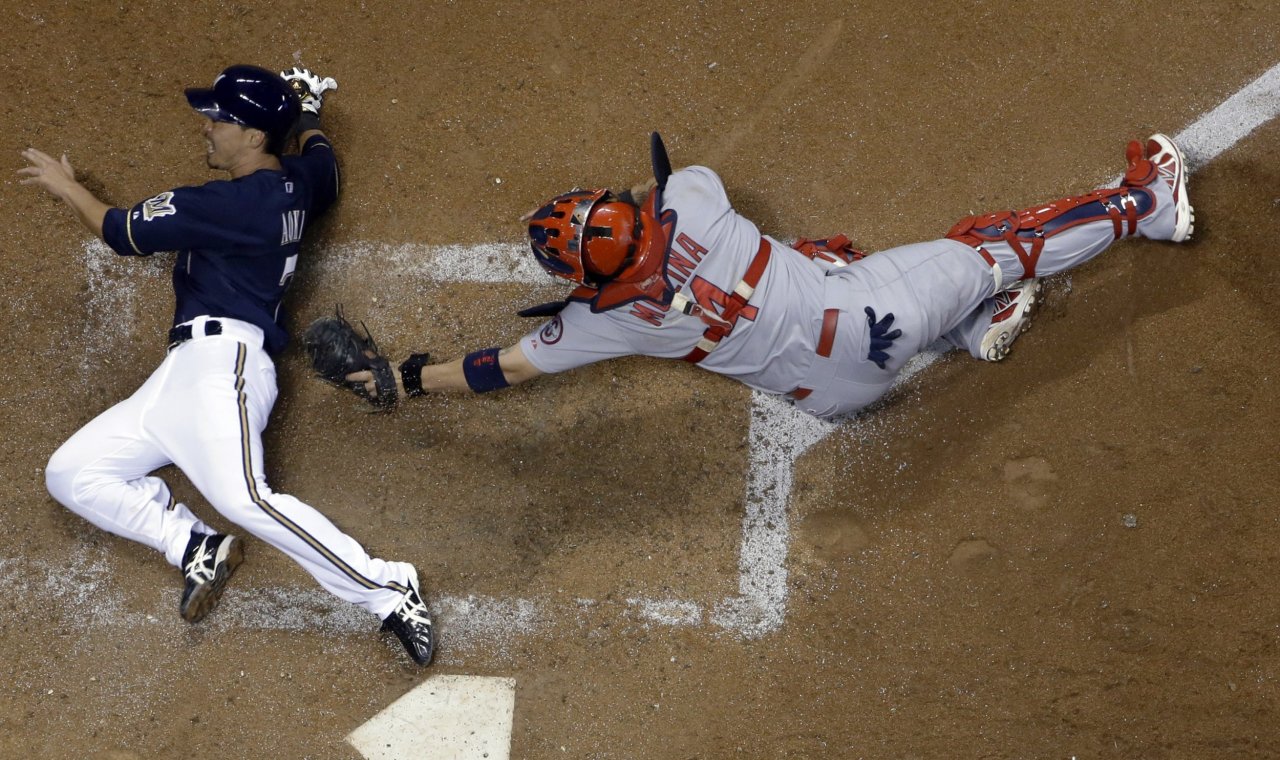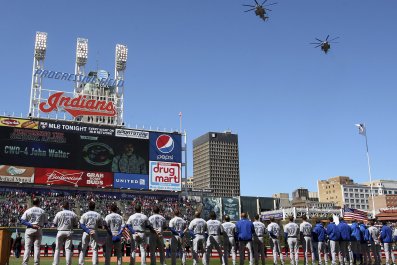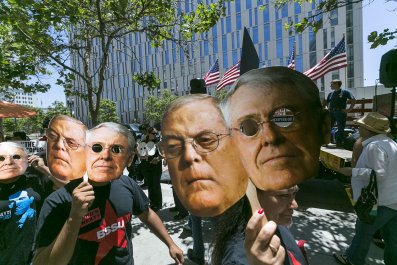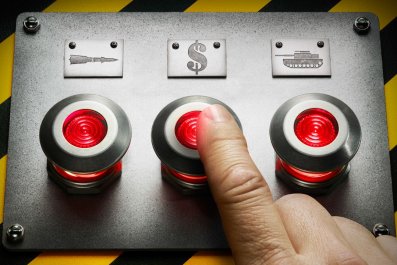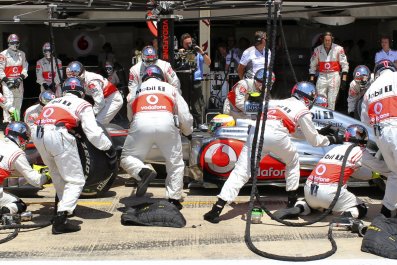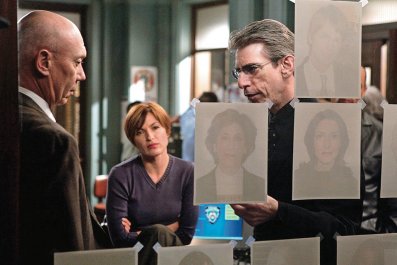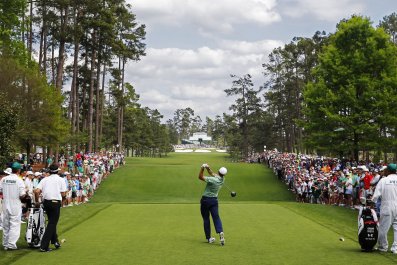That didn't take long.
Less than a fortnight into the 2014 Major League Baseball season, into the national pastime's brave new world of Orwellian instant replay review, into its attempt to eradicate human error in the one sport in which "error" is a statistical category, a glitch in the system has surfaced: the humans.
Try as it might, baseball cannot seem to rid itself of these pesky (and I don't mean Johnny) creatures. "As much as they're trying to help the human element," Boston Red Sox manager John Farrell said after becoming the first person in major league history to be ejected from a game following a video review reversal of a call, "it seems like it's added the human element at a different level."
On Sunday, April 13, Farrell's Red Sox were playing the New York Yankees in the Bronx. With runners on first and third and one out, Yankees catcher Francisco Cervelli appeared to ground into a 5-4-3 double play. The out at first base was what purists might refer to as a "bang-bang play," the ball entering Red Sox first baseman Mike Napoli's glove as Cervelli's foot touched the bag.
First base umpire Bob Davidson called Cervelli out. Yankees Manager Joe Girardi challenged the call. A phone call was placed to Major League Baseball's Replay Operations Center in Manhattan, where an umpire seated in front of a bank of monitors had 12 different views of the play. Because the game was being aired in prime time on ESPN, millions of viewers also saw multiple angles of the play. None appeared conclusive, but the call was overturned. Cervelli was ruled safe.
Farrell, apoplectic, charged out of the dugout to kick dirt and bellow at the men in blue. The problem? The umpire who ultimately made the decision that cost the Sox an out, and hence a run (in a one-run loss), was seated seven subway stops south of Yankee Stadium in a fifth-floor studio in what once was the Nabisco factory.
The ultimate irony, and what may stand as the signature play of the 2014 season, was this: Davidson, who had originally called Cervelli out, tossed Farrell for arguing that Cervelli was out. ("I agree with you! Now, hit the showers!") Aggravating matters was the fact that one day earlier, Farrell had challenged a call at second base that seemed far more conclusive, in his favor, but lost the challenge.
"It's hard to have any faith in the system," said Farrell after his team's lost weekend in the Bronx. And, remember, this is the manager of the defending World Series champions. On the same day last week that baseball commissioner Bud Selig proclaimed that instant replay thus far has been a source of "very little controversy", Farrell was fined an undisclosed sum for the above remark.
Baseball's embrace of video replay—of the 21st century, some would say—was cheered by most after it was announced. Before this season, umpires were permitted to use video review only on disputed home run calls. Now, each manager is given one challenge per game; two, if the manager wins his initial challenge. Managerial challenges may be used on just about everything except called balls and strikes, check swings, obstruction and interference, and the infield fly rule.
"All of a sudden, everything is fair and square," said recently retired Detroit Tigers manager Jim Leyland. "Not that it wasn't before, because the human element was there for all the teams. But nobody wants a Galarraga to lose a perfect game."
In June 2010 Armando Galarraga, then a Tigers pitcher, was one out away from hurling the 21st perfect game in major league history. On what should have been the final out, umpire Jim Joyce botched the call at first base on a play that, to borrow a metaphor from another sport, should have been a layup.
Joyce's error cost Galarraga one of the rarest of baseball achievements—though, as time has proven, it has provided the otherwise nondescript Galarraga baseball immortality. Afterward, Joyce owned up to his flub by telling reporters, without irony, "Nobody's perfect."
Nobody is. It is a problem that has haunted mankind—and not just baseball commissioner Bud Selig—dating as far back as Eve, through the maiden voyage of the Titanic, and now to a recent four-game series between the Red Sox and Yankees. Anything touched by man is predisposed to fallibility. Anyone who has ever read a science fiction novel knows that.
However, as athletes become faster and as video technology evolves at an even faster pace, mistakes such as the one made by Joyce are both more likely to occur and more prone to being exposed. They live forever in infamy—and on YouTube.
Baseball's answer is an expansive and expensive video replay system. Now, every ballpark is outfitted with 12 cameras. Each team has a video replay coordinator inside the stadium whose job it is to phone the dugout to advise the manager to challenge a call. The manager has until a pitcher has taken his place on the rubber and the batter has entered the batter's box to challenge.
Thus, on a disputable play, you will no longer see combustible Minnesota Twins manager Ron Gardenhire race out to the plate to swap expletives with the home plate umpire, their faces three inches apart. Rather, you will watch Gardenhire as he ambles onto the field, stalling for time and stealing glances back at the dugout to see if he has the green light from the video coordinator. He looks less like a big-league manager than he does Kevin Arnold approaching Winnie Cooper at a junior high dance.
"I don't like it," Oakland A's second baseman Nick Punto, a 14-year veteran, told the The Sacramento Bee. "I think we train and hire the best umpires in the world. I'm going to miss seeing the Ron Gardenhires go out there and blow a gasket. Those are things that are entertaining for fans and something that we've been doing for the last 100 years, and now you're not going to see that."
In the first week of the season, Punto was involved in a challenged play. Mike Aviles of the Indians had been called out attempting to steal second base, but Punto had applied a phantom tag—his glove hadn't actually touched Aviles. As soon as Indians manager Terry Francona emerged from the dugout, Punto smiled ruefully, fully aware that replay would indict him.
"I was like, 'This is going to take another four minutes,'" said Punto, alluding to a challenged call from earlier in the series that was reviewed for 4:45 before umpires ruled it inconclusive. "I wish I could just raise my hand and say, 'Yeah, I didn't tag him.'"
Punto cannot. Instead, a phone call is placed from the ballpark, be it as far away as Oakland or as close as across the Harlem River, to the Replay Operations Center on the fifth floor of what is now known as Chelsea Market. There, inside a windowless 900-square-foot studio, as many as six major league umpires per day are charged with monitoring games and serving as final arbiter in diamond disputes.
Hence, almost every challenged umpire call will involve at least two telecommunications calls. Baseball has become a Game of Phones. It's mission control meets MLB, where baseball has less in common with balls and strikes than it does with drone strikes.
And while well-intentioned, this system cannot save baseball from itself. Consider that it would not have overturned the most egregiously awful call in recent postseason memory. In the eighth inning of the 2012 National League Wild Card game between the St. Louis Cardinals and Atlanta Braves, a ball that dropped behind Cardinals shortstop Peter Kozma at least 25 feet beyond the infield dirt was ruled an automatic out via the infield fly rule.
That bizarre call, literally out of left field, altered the outcome of the game. Under the current review guidelines, it could not be challenged.
Baseball is no stranger to evolution. Day games gave way to night games. A segregated league gave way to Jackie Robinson and later, a welcome infusion of Latin-American and later Asian talent. In 1968, the mound was even lowered.
Replay should guarantee that errors such as the one Joyce made four years ago will never have to blemish the permanent record. But it will not eliminate bad calls from baseball and it may rob the game of some of its charm. It's still too soon to tell. As Atlanta Braves manager Fredi Gonzalez said earlier in April when asked his opinion of replay, "Ask me again in a month."
Meanwhile, the games will continue. To paraphrase one of baseball's oldest clichés, "Replay ball!"



